- Home
- Brian Garfield
Fear in a Handful of Dust Page 3
Fear in a Handful of Dust Read online
Page 3
Duggai watched him wrap the stiff wire around his right wrist. He twisted the end around the stem and held his arm up to show Duggai it was secure. The long piece of wire dangled stiffly from his wrist.
“Lie down belly flat now. Turn your face to the wall. Put both hands behind your ass.”
“Calvin, I don’t think this is going to …”
“Shut up,” Duggai roared. In his fist the Magnum trembled.
He felt his wrists being slammed together and wired tight. Then Duggai rolled him over on his back. Mackenzie looked up at him, past the massive revolver. “What now?”
“Now we go.”
The dog walked a little way with them until Duggai got angry about it. Mackenzie said, “Stay,” and the dog watched them go. From the bottom of the road Mackenzie saw her trot over to the foot of the tower to dig up yesterday’s Milk Bone.
About a quarter mile down past the fork Duggai turned him off the road into the trees. They walked forty or fifty feet and a brown camper-body pickup truck came in sight parked back in the woods. To get this far off the road it had to be four-wheel drive. Mackenzie saw that it had Nevada license plates. Duggai must have pinched the plates somewhere. Clever enough. He couldn’t see through the camper windows because red-and-white checkerboard curtains were down across them inside.
Mackenzie stopped, not sure what was expected of him; the muzzle of the Magnum dug into his back. “Keep going.”
“Where?”
“Back of the truck.”
The chill in the thin early air came through his tunic and made him shiver involuntarily. Duggai mistook the meaning of it. “You going to be a lot more scared after a while, Captain.”
Mackenzie wanted it to be over with, whatever it was Duggai had in store for him. But Duggai was right: he was afraid. I’m damn well terrified, he admitted to himself.
He watched the big Navajo dig keys out of his pocket and run through three of them until he found the one that unlocked the back door of the camper. Duggai swung it open and gestured.
With his hands wired behind him he had to make three tries before he was able to get up into the camper without losing his balance and falling back. He stepped up on the pickup’s rear bumper and stooped to go inside.
“Sit down there on the bunk.”
It was a bare mattress in a frame against the aluminum sidewall. On the opposite wall were a compact bottled-gas stove and a tiny flap-table hinged down flat against the wall; there were booth seats on either side of the lowered table. The seats doubled as storage compartments. Camping gear was lashed down on top of them: blankets, a Coleman lantern, five-gallon water drums, canvas sacks that probably contained provisions. Overhead were narrow lockers. A long weapon case was suspended from cleats in the ceiling; probably a hunting rifle with a scope, hung up there out of the way so that it wouldn’t bang against anything that would knock the sights off center. Forward in the cramped space above the cab a child-size bunk lay crosswise near the ceiling; this too was piled with lashed-down objects and sacks. There was a water tank in the back corner to which a shower head could be screwed by way of a fitting outside the truck. The windows were small—one on each side, one in the back door—and he saw that the curtains had been tied securely across them.
Duggai had a short piece of heavy rope coiled into a noose. Mackenzie hadn’t seen him pick it up. “Raise your feet off the floor.”
He lifted his feet and Duggai flipped the noose under them, adjusting it and gesturing. Mackenzie dropped his feet back to the floor inside the noose. Duggai pulled it up tight, forcing him to cross his ankles; then Duggai swiftly ran the rope back under the cot and threaded it through something Mackenzie couldn’t see—a cleat under the seat or a metal cot leg. Duggai pulled the knot up tight. Then he took the cased rifle down off the ceiling. In the opening behind him birds flitted among the sunlit treetops.
“I don’t guess you’ll get loose right away.”
“Is there a point to all this?”
“You’ll figure it out for yourself by and by. Now just in case we stop for gas or a red light or anything I’m going to put a gag in your mouth. I guess you know enough not to strain against it. Man can choke to death on his vomit with a gag tied into his mouth.”
“Thoughtful of you.”
“I want you in real good shape, Captain.” Duggai put a wad of cloth in his mouth and tied it in place with a length of precut clothesline. Mackenzie had to acknowledge that Duggai was well equipped for whatever his scheme was: everything—rope, cloth gag, clothesline—was at hand when Duggai needed it.
Finally Duggai backed out of the camper. “You take it easy now. Think about what I’m going to do to you.”
The door slammed. Mackenzie heard the lock shoot home. The truck swayed with Duggai’s weight when the big man climbed into the driver’s seat; the door chunked shut; the starter meshed; the engine chugged. After a moment the truck began to move, slinging Mackenzie from side to side on the cot.
Something skidded across the floor. It drew his attention. At first he couldn’t determine what it was; then he recognized it. A thin transparent plastic raincoat, folded into a tiny packet and held together by a snap-band of the same material. Camper’s emergency equipment.
The truck lurched across the uneven ground in low gear, the four-wheel drive whining. Mackenzie braced himself hard back against the wall to keep from being thrown off his seat.
The journey began.
3
Jay Painter came out of his classroom feeling hoarse. He fended off an eager student who tried to buttonhole him and escaped down the back flight of concrete stairs and emerged into the July sun to make his way through the flowing student throng.
A pair of handsome girls drew his attention. The big one had golden skin, darker than her unbleached hair—a surf-baby, California goddess, caricature of healthy athletic perfection. He thought wonderingly, She doesn’t get much change from six foot.
The girl’s companion was stouter, her skin pale, almost transparent; she walked pitched backward against the swaying counterweight of her pregnant belly. Associations caromed around in his mind and made him remotely bitter. He crossed the Stanford lawns toward the faculty parking lot and saw Elderslee getting into his car—enormous and shabby and old, a gray eminence crowned by a violent eruption of tangled hair.
Elderslee waved a thick folder of student papers at him as if in accusation. “We’re fast becoming a nation of illiterates. I’ve got a list of flunkees longer than your face. It’s disgusting.”
“The television generation,” Jay Painter said. Elderslee had written two books that had become definitive psychology texts. He loved disputation, hated humanity and loathed students; he loved human beings.
“Can I have ten seconds?”
Elderslee looked at his watch. “Barely. I’m on my way to a consultation.”
“They’ve roped me into testifying on Tuesday.”
“The Boley woman?”
“Yes. Can you arrange to have one of the lecturers take over my classes?”
“Certainly.” The old man unlocked his Volkswagen and tossed the file of papers inside. “Incidentally, what’s your testimony going to be? What are your conclusions?”
“I think she’s feigning it. I think she’s perfectly competent to stand trial.”
“Feigning madness is itself a sort of madness.”
“Not the kind that matters in court,” Jay Painter said.
“Some of the other boys found her convincing enough. Jack Feinberg’s going to testify for the defense, you know.”
“There are a few too many inconsistencies in her performance.”
Elderslee wedged himself into the car. He rolled the window down before he pulled the door shut; he looked up at Jay and squinted in the sunlight. “Doesn’t it ever begin to strike you as a silly childish game of pointmanship? The prosecution parades its battery of friendly expert witnesses and then the defense follows suit.”
“It’s what
keeps our art from becoming a science. But it keeps it alive.”
“It’s why I gave up testifying in criminal cases. Legal definitions of insanity are the real insanities.”
“I can’t argue with that.”
“I’ll ask Van Alstyne to cover for you Tuesday.” The old man put it in gear and Jay watched him drive away. The car spewed smoke from its tailpipe.
When he approached the station wagon he saw himself reflected in its back window—wavering image of a thin tall man thatched with dark hair, wearing a faint stoop and an aura of melancholy and what he fancied to be the look of confidence that came of knowing one’s way around in the world. As he drew closer he bent down to study his face in reflection. He could find no sign of the uncertainties that bubbled within.
He wasn’t sure whether to be heartened. Was it strength or weakness to wear a cloak of intact assurance over a body secretly racked with inadequacy?
I suppose everybody does it.
He got in the car.
Palo Alto was thick with traffic and he was ready for a drink by the time he got home. He parked the wagon in the driveway under the palm tree because the lawnmower was still scattered in dismantled chaos on the garage floor. Down the street a brown camper-body pickup truck was parked at the curb; he hadn’t seen it before and wondered briefly to whom it belonged.
He heard faint splashings and went around the side of the house and found Shirley floating in the pool on her back, kicking her feet each time her legs started to sink.
“Hey you.”
“Hey yourself.” She stood up in the pool and waded to the edge; he gave her a hand up and kissed her carefully so as not to get his suit wet.
“I want a drink.”
She said, “I haven’t got the nerve to make myself another martini, but if I hope and pray …”
He found her empty glass by the aluminum chaise and went inside. Her papers were strewn across the kitchen table and he paused to glance down at one of them.
… but everyone has their own way of dealing with these problems. According to Dr. Herbert Kalbstein the most unique aspect of the schizoid syndrome is when the therapist first contacts the patiant’s undermind.
The term paper was ever so neatly typed. The page was covered brutally in the red scrawl of Shirley’s pencil. Everyone and their were circled and joined by a red line: “Grammatical agreement.” Most unique was circled: “Tautology.” Is when was circled: “Illiterate.” Contacts was circled: “Not a verb.” Patiant’s was circled: “If you can’t spell, use a dictionary.”
He made the drinks and took them out to the pool. Shirley was on the chaise removing her swimming cap and shaking out her soft rosewood hair. Freshly washed, it shimmered in the sun. “I shouldn’t drink this damn thing. I’ve still got a dozen papers to do.”
“What’s the point? Elderslee was just complaining about our nation of illiterates. We all might as well hang out shingles as remedial writing tutors. I saw your editing job in there.”
“Don’t get me started on that again.”
He stood hipshot with his feet slightly apart, jingling keys in his trouser pocket, regarding her white bikini. “You’re very seductive in that outfit.”
“I know.”
“I’m feeling vaguely shitty.”
“Why?”
“General malaise. I must be regressing to sophomorics. The ‘what-does-it-all-matter’ phase. Like some idiot writing rancid poems in search of the meaning of it all.”
“At SFC we call that the professorial tenure syndrome.”
She taught at San Francisco College because the universities had regulations against husband and wife serving as tenured professors on the same faculty. Privately he felt it was a wise regulation.
“I told Elderslee I’m testifying against Mrs. Boley. He delivered himself of the usual harangue. For some reason I listened this time. And you know he’s got a point—a toss of the coin and I could just as easily be testifying for the other side.”
“So?”
“The rest of the woman’s life could hang on my whim. Maybe I chose to disbelieve her because I had something sour for breakfast. She could be committed on my error. I worry about it.… Did you hear, Calvin Duggai broke out?”
“Come on, Jay, nobody expects omniscience—all they want is our best judgment.” She downed the last of the drink and stood up. “Getting chilly out here.” Then, turning, she said in a musing voice, “Yes, I heard about Duggai. Maybe that’s why I feel cold. I hope they catch him quickly.”
In the house he stripped off his jacket and tie and watched her get into slacks and an old blouse. The swim had left her tight in her skin.
She gave him a sudden look. “Do you want to?”
“Later.”
She buttoned the blouse. “Should we have wine with dinner?”
“Sure.”
She went out of the room ahead of him and he followed her toward the living room. He banged into her when she stopped abruptly.
He looked over her shoulder.
In the center of the room loomed Calvin Duggai, his eyes cold as death.
Sight of the man stunned Jay to silence. Shirley’s shoulders lifted defensively. She backed into him; he gripped her arms.
Duggai stood absolutely still for such a long time that his very motionlessness became menacing. It was a while before Jay noticed the huge revolver in Duggai’s fist.
The silence nearly cracked his nerves before Duggai spoke.
“Come over here.”
The chilly precision of the Navajo’s voice was a terrifying thing.
4
Mackenzie’s mouth was painfully dry and he was having trouble breathing with the rag stuffed against his tongue. His hands behind him felt heavy and dead; he could picture them thickened and darkened with blood. In fact he knew the wires were not that tight but everything was cause for terror and he was sensitive to every nuance of pain in his cramped bruised body.
He heard the key in the lock and soon the door swung open and admitted light into the camper from a streetlamp fifty feet distant. He expected Duggai’s silhouette; he was taken by surprise when three shapes appeared, one of them a woman.
Then he recognized them.
At first they didn’t see him in the shadows. Then as Jay Painter climbed awkwardly inside, his hands wired behind him, Mackenzie saw his eyes change with recognition.
Jay stopped bolt still for a moment. Duggai prodded him.
Their faces were half masked by clothesline gags. Duggai’s scheme left no possibility of outcry or rebellion. Duggai wigwagged the Magnum and Jay obediently sat beside Mackenzie on the cot. After the initial contact Jay refused to look at him again; he averted his head. Duggai performed his noose-on-the-floor trick to prevent being kicked while tying Jay’s feet. Then he shoved Shirley inside. She tripped and fell past Mackenzie against the provisions on the bench seat. Bent nearly double under the low roof, Duggai fastened Mackenzie’s hands to a metal support behind him and wired Jay’s hands to the adjacent support. It was to prevent them from untying one another’s hands.
Duggai dragged Shirley to the back of the truck and sat her down roughly beside Jay and tied her up in the same way. It put Jay in the middle.
Duggai went. When the door slammed it took the light with it; only a vague illumination penetrated the checkerboard curtains. It was enough to see Jay’s silhouette.
He felt it when Duggai climbed into the driver’s seat. The engine started. Mackenzie saw a refracted red glow in the rear window when the taillight came on. The shift went into gear. He touched Jay with an elbow, leaning back at the same time, trying to tell Jay that he should brace him self. Jay didn’t understand the message; he sat stiffly upright exuding anger and indignity and fear until the truck lurched away from the curb—Duggai was not a smooth driver. It caught Jay off balance and he nearly went off the seat. After that he leaned hard back against the wall and Mackenzie saw him hold his elbow out protectively in front of Shirley.
He imagined he felt waves of similar feeling coming off his companions.
The truck pitched through back streets. It kept stopping and starting up again; he knew it could be no thoroughfare. Possibly Duggai had a road map on the seat beside him and was avoiding main-traveled highways because he feared roadblocks.
It had been easy enough during the morning to follow the truck’s progress even though his imprisonment in the curtained camper had rendered him effectively blind. There’d been no mistaking it when the truck had gone out onto the blacktop county road, or when it had dropped through the foothills and gone onto the freeway. But at that point he’d lost his sense of bearings; he’d been uncertain whether they were traveling east or west until now. This of course had to be Palo Alto because that was where Jay and Shirley lived. He remembered their white stucco house, the red tile roof, the swimming pool, the sliding glass doors to the crisp modern living room.
The truck growled slowly through the streets: not hurrying. Hurrying might have attracted the attention of a prowling police car.
The pickup turned a corner, pressing Mackenzie back against the wall. He heard the folded transparent plastic raincoat skid lightly across the floor; he even felt it, light as it was, when it struck the side of his shoe. For some perverse reason he lifted his foot and stamped down on the little bundle, pinning it under the sole of his shoe. It was a bit softer than the truck floor. He held it there with the weight of his foot.
Mackenzie had a clear idea where Duggai would stop next. There had been four psychiatric witnesses at Duggai’s trial.
5
Earle Dana watched himself on television, observing the performance critically.
He had switched off the lights in the apartment and he sat in the armchair facing the color set.

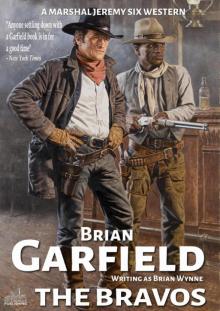 Marshal Jeremy Six #3
Marshal Jeremy Six #3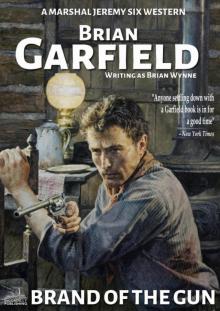 Marshal Jeremy Six #6
Marshal Jeremy Six #6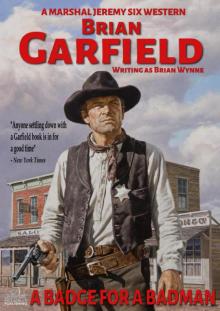 Marshal Jeremy Six #5
Marshal Jeremy Six #5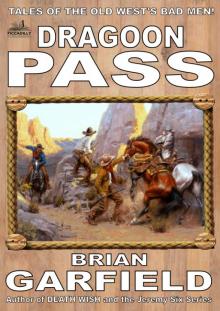 The Outlaws 2
The Outlaws 2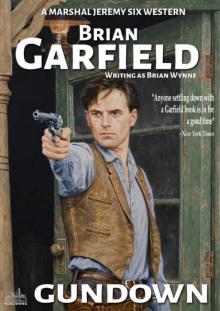 Marshal Jeremy Six #7
Marshal Jeremy Six #7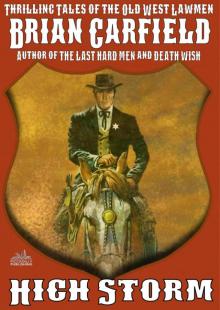 The Lawbringers 4
The Lawbringers 4 Marshal Jeremy Six #4 the Proud Riders
Marshal Jeremy Six #4 the Proud Riders The Romanov succession
The Romanov succession Marshal Jeremy Six #8
Marshal Jeremy Six #8 Sliphammer
Sliphammer Line of Succession
Line of Succession Deep Cover
Deep Cover Kolchak's Gold
Kolchak's Gold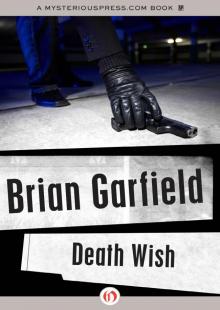 Death Wish
Death Wish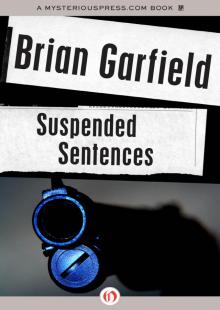 Suspended Sentences
Suspended Sentences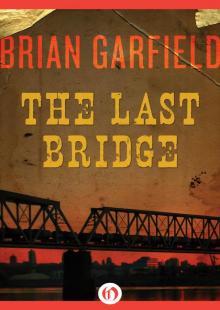 The Last Bridge
The Last Bridge Relentless
Relentless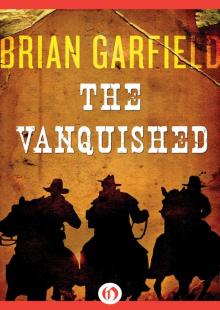 The Vanquished
The Vanquished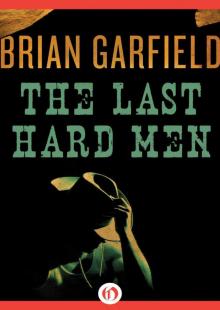 The Last Hard Men
The Last Hard Men Hit and The Marksman
Hit and The Marksman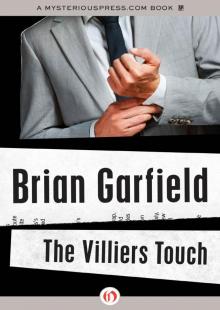 Villiers Touch
Villiers Touch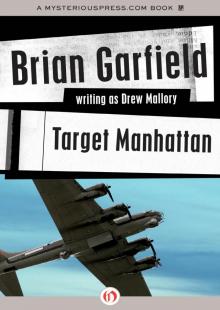 Target Manhattan
Target Manhattan Marchand Woman
Marchand Woman What of Terry Conniston?
What of Terry Conniston? Threepersons Hunt
Threepersons Hunt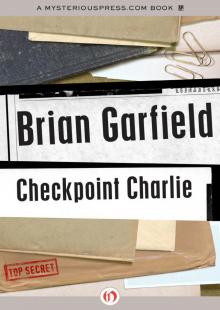 Checkpoint Charlie
Checkpoint Charlie Romanov Succession
Romanov Succession Necessity
Necessity Death Sentence
Death Sentence Fear in a Handful of Dust
Fear in a Handful of Dust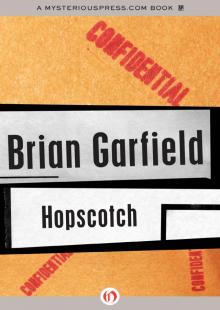 Hopscotch
Hopscotch